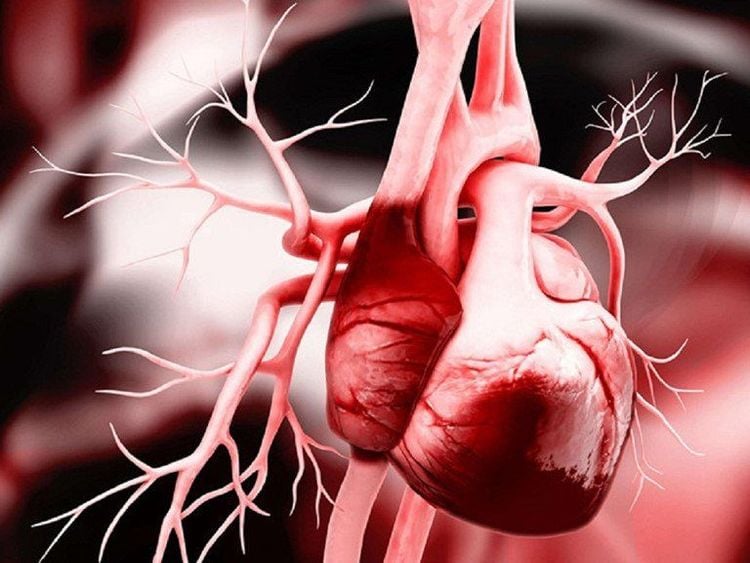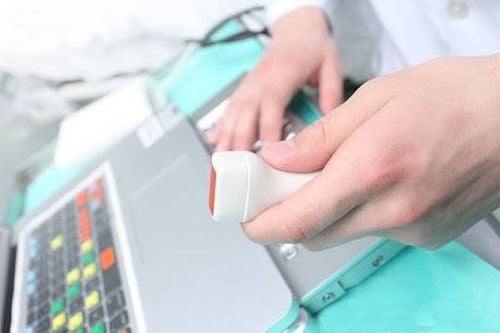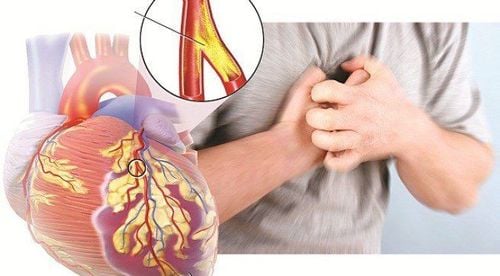This is an automatically translated article.
Cardiogenic shock is a condition in which the heart suddenly cannot pump enough blood to meet the body's needs. Cardiogenic shock is rare, but if not detected and treated promptly, it can lead to death.
1. What is cardiogenic shock? Recognizing symptoms
Cardiogenic shock is a condition in which the heart is suddenly unable to pump blood to meet the body's need for oxygen. Symptoms of the disease include:
Rapid, rapid breathing, shortness of breath; fast heart rate, nausea and vomiting; Loss of consciousness with weak pulse; Low blood pressure, sweating; Pale skin, little urine; Cold hands and feet; Tight pain in the chest area that lasts more than a few minutes; Pain spreads gradually to the shoulder, even pain spreads to the teeth and jaw; The episodes of chest pain gradually increase with each episode; Sudden dizziness or lightheadedness.
2. Causes of cardiogenic shock
There are many causes of cardiogenic shock, but it is still mainly due to angina pectoris. When oxygen-rich blood does not circulate to the heart chambers, it weakens the heart muscle and leads to cardiogenic shock. Some of the following risks can also cause cardiogenic shock:
Elderly people; Have a history of pain or heart failure; You have high blood pressure and blockages in several major arteries.

Cơn đau thắt ngực là nguyên nhân chủ yếu gây sốc tim
3. What medical techniques help diagnose cardiogenic shock?
Cardiogenic shock is an emergency, so when receiving the patient, the doctor will quickly check the signs and symptoms of shock, prescribe a number of techniques to find the cause of the illness. Medical techniques to help diagnose cardiogenic shock may be:
Blood pressure measurement: During cardiogenic shock, the patient's blood pressure will drop. Therefore, blood pressure measurement is one of the diagnostic techniques. Electrocardiogram (ECG): This method records the electrical activity of the heart. If the patient has damage to the heart muscle, there is a problem with conduction of electrical impulses, or fluid accumulates around the heart, then the image recording the conduction of electrical impulses will show abnormal spots. Chest X-ray: This is a technique that uses X-rays to take pictures of the heart, lungs, airways, blood vessels, and lymph nodes. Therefore, ordering a chest X-ray will help the doctor check the size and shape of the heart as well as the surrounding blood vessels. Blood tests: The patient will be ordered to draw blood to check for signs of organ damage or infection. Depending on the individual case, the doctor will order an arterial blood gas test to measure the oxygen level in the blood. Echocardiography: Sound waves help doctors see an image of the heart and record it through ultrasound technology at that moment. This technique will identify damage caused by angina attacks. Coronary angiogram: The technician inserts a contrast solution into the artery through a long, thin catheter (catheter). The catheter is usually inserted into the body from an artery in the lower leg. Contrast is inserted to help detect areas of blood vessels that are blocked or narrowed.
4. Treatment of cardiogenic shock
Once the cause of cardiogenic shock has been determined, the doctor will prescribe a treatment method. Most patients with cardiogenic shock need extra oxygen. Therefore, the doctor will prescribe the use of a ventilator, along with intravenous fluids and drugs. Specific treatment methods are as follows:
Use of drugs: Solutions, plasma are infused intravenously and drugs for shock, thereby increasing the heart's pumping ability; Surgery: Coronary bypass surgery, surgery to repair damage to the heart, heart transplant; Medical procedures such as: Angioplasty and stenting, balloon pump, mechanical support. The above are some common methods of diagnosing cardiogenic shock. In case of signs of a heart attack or cardiogenic shock, the person should seek medical help immediately. In particular, in order to protect cardiovascular health in general and detect early signs of cardiogenic shock in particular, each person should have periodic cardiovascular health checks at reputable medical facilities. Currently, Cardiovascular Center - Vinmec International General Hospital is one of the leading centers in the country for examination, diagnosis, screening and treatment of cardiovascular diseases. Vinmec not only has the convergence of a team of experienced and reputable leading experts in the field of surgical, internal medicine, interventional cardiac catheterization, but also has a system of modern equipment, on par with The most prestigious hospitals in the world such as: MRI 3 Tesla (Siemens), CT 640 (Toshiba), EVIS EXERA III high end endoscopes (Japan Olympiad), high anesthesia system Avace level, Hybrid operating room according to international standards... Especially, with the space designed according to 5-star hotel standards, Vinmec ensures to bring patients the most comfort, friendliness and peace of mind. .
Please dial HOTLINE for more information or register for an appointment HERE. Download MyVinmec app to make appointments faster and to manage your bookings easily.













